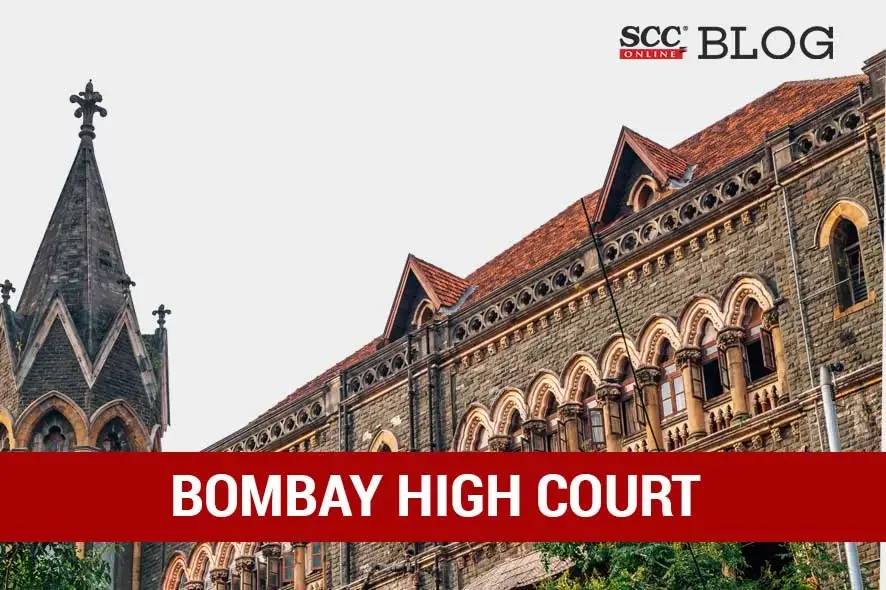Bombay High Court: In twin petitions filed under Article 226 of Constitution of India challenging assessment order dated 13-03-2023 for 2015-16 and 2016-17, assessing petitioner’s liability for levy of Local Body Tax (‘LBT’) under the Maharashtra Municipal Corporation Act (‘MMC Act’) for demands of Rs 2,09,72,136 and Rs 2,71,36,506, the Division Bench of G.S. Kulkarni and Jitendra Jain, JJ. refused to interfere but allowed the petitioner to avail the remedy of appeal under Section 406 of MMC Act.
Background
The petitioner possessed a registration certificate under LBT with respect to its factory situated within the municipal limits of Vasai-Virar City Municipal Corporation. The Court highlighted the lack of specific averments in the first writ petition and absence of details regarding the nature of business, goods, etc. However, it was contended that the Assessing Officer passed the impugned order under Section 152S of MMC Act read with Rule 33 (3) of Bombay Provincial Municipal Corporation (LBT) Rules, 2010 in the absence of any authority of law comprising of tax, interest and penalty. The State opposed the instant petition on the ground that the petitioner had alternate remedy of appeal under Section 406 of MMC Act.
It was contended that Section 152D of MMC Act was ultra vires and violative of Article 19(1)(g) of Constitution of India for being contrary to Section 127(2)(aaa) of MMC Act, and that levy of LBT under Section 152D and Rule 28(3) of the LBT Rules was contrary to charging under Section 127(2)(aaa) of the MMC Act. It was further contended that the appeal under Section 406(6)(ii) read with sub-section (8) was not an efficacious remedy since it requires disputed tax to be deposited.
Court’s Analysis of LBT under MMC Act
The Court explained that prior to LBT, ‘Cess’ was levied on entry of goods within the municipal limits for use, consumption and sale, included as one of the municipal taxes under Section 127 of MMC Act. The Court perused the relevant provisions and clarified that the said provision was amended by Act No. 27 of 2009 substituting Cess with LBT.
The Court observed that the municipal taxation with respect to levy and recovery of LBT is part of a well-defined statutory scheme, being a Code by itself. The Court refused to examine the vires of Section 152D of MMC Act while opining that the main aspect questioned in the instant petition was the Assessment Orders. The Court justified the same considering the petitioner’s averments taking a position contrary to settled principles of law when the validity of appeal after deposit of disputed tax had already been upheld.
The Court found the petitioner’s contentions contrary to the Division Bench’s observations in Kharghar Coop. Housing Societies Federation Ltd. v. Municipal Commr., 2023 SCC OnLine Bom 775. The Court referred to several decisions of Supreme Court wherein, entertainment of petition under Article 226 of the Constitution assailing assessment and demand order was restricted and proper remedy was suggested to be an appeal. The Court recommended that the said decision was squarely applicable in the instant matter.
The Court pointed out the petitioner’s contention that they did not buy, consume or sell the goods but purchased local goods, not liable for levying LBT, and clarified that the same was factual contention which could effectively be examined on the basis of documents presented in the appeal proceedings.
The Court clarified that the petitioner could not make a case for interference of the Cout in the instant matter to make an exception to entertain the petitions as against the available option of appeal under Section 406 of MMC Act. The Court further observed that “merely for the reasons that the vires of a statutory provision namely Section 152D of the MMC Act being assailed by the petitioner, would not mean that de hors a strong foundation and a cause of action for assailing such provision being made out, the Court nonetheless would be under an obligation to examine the vires of the said provision and entertain the petitions.”
Therefore, the Court allowed the petitioner to avail the remedy of appeal under Section 406 of MMC Act assailing the impugned assessment orders within 4 weeks, to be adjudicated by appellate authority on merits without objecting on limitation, and also, kept open the scope or challenging the vires of Section 152D of MMC Act.
[Kokuyo Camlin Ltd. v. State of Maharashtra, 2023 SCC OnLine Bom 1664, decided on 10-08-2023]
Advocates who appeared in this case :
For Petitioner: Senior Advocate R.V. Desai, Advocate Deepak Bapat, Advocate Sumedh Hinge;
For Respondents: Advocate Shruti D. Vyas, Advocate Swati Sagavekar.








